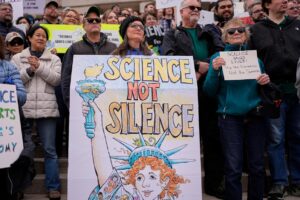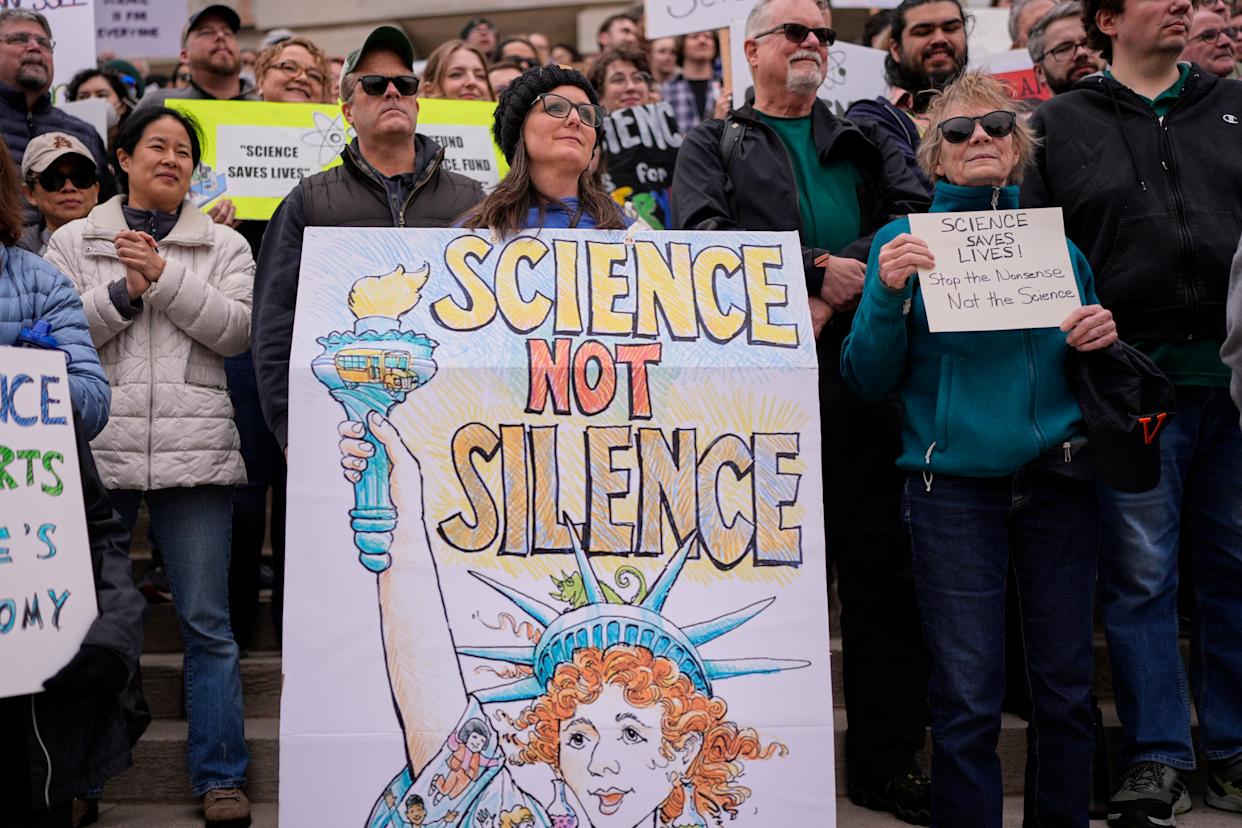
By Adeyemi Adekunle
Thousands of scientists, medical professionals, patients, and advocates took to the streets to protest against the Trump administration’s controversial policies perceived as harmful to scientific research and public health. The central event, titled “Stand Up for Science,” unfolded at the iconic Lincoln Memorial, bringing together approximately 2,000 passionate participants. Similar rallies occured in over 30 cities across the United States, alongside international solidarity events, particularly in France.
The escalating discontent stems from a series of administrative actions that have ignited fears over the future of scientific advancement and public health safety. Most concerning among these are the suspension of grant funding from the National Institutes of Health (NIH), widespread layoffs at federal scientific agencies, and the alarming removal of critical health data from official government websites.
At the heart of the San Francisco rally outside City Hall, hundreds voiced their frustrations over severe job cuts and funding reductions severely impacting scientific research. Many researchers have found themselves without salaries due to the National Science Foundation (NSF)’s abrupt halt of grant payments, leading to hiring freezes, layoffs, and the alarming cessation of numerous research projects. “We are witnessing a catastrophic collapse of the scientific community,” said Dr. Sarah Thompson, a leading researcher in environmental health. “How can we make progress when we are undermined at every turn?”
The administration’s actions have also resulted in the withdrawal of essential health data from federal platforms, obstructing public access to valuable information regarding diseases and health disparities. This data purge has raised serious concerns about government transparency and the potential fallout for public health initiatives. Attendees at the rallies voiced their outrage over what they described as an unprecedented step backward in terms of public welfare.
“The removal of this data is not just an inconvenience; it’s a public health crisis waiting to happen,” stated Jorge Ramirez, a public health advocate who has dedicated years to addressing health inequities. “Without accurate data, we cannot inform the public or allocate resources appropriately. Lives are at stake.”
The “Stand Up for Science” rallies highlight the growing trepidation within the scientific community concerning policies that threaten both research and public health, as the nation’s position as a global leader in scientific innovation hangs in the balance. Protesters called for immediate actions, including the reinstatement of funding, the rehiring of dismissed scientists, and a fervent recommitment to evidence-based policymaking.
The emotional atmosphere was palpable as speakers addressed the crowd, underscoring the importance of scientific integrity and transparency in governance. “We came together today not just for ourselves as scientists, but for the public we serve,” declared Dr. Emily Chen, an epidemiologist who spoke passionately about the potential long-term effects of funding cuts on public health research. “We must reclaim the narrative of science. It’s not just data; it’s about lives—our families, our communities.”
In addition to the voices of scientists and health professionals, patients chronicled their harrowing experiences of navigating the healthcare system amidst an increasingly uncertain landscape. Testimonials echoed through the crowd, reminding everyone of the stakes at hand. “My access to critical treatments is compromised because of these cuts,” shared Mary Johnson, a cancer survivor and advocate. “We can’t afford to let politics compromise our health.”
The protests received international attention, with solidarity demonstrations springing up across Europe, most notably in France, where activists echoed similar sentiments regarding the importance of preserving scientific integrity and public health. This global solidarity signals a crucial moment in the collective fight for policies that uphold the values of research, evidence, and public wellness.




